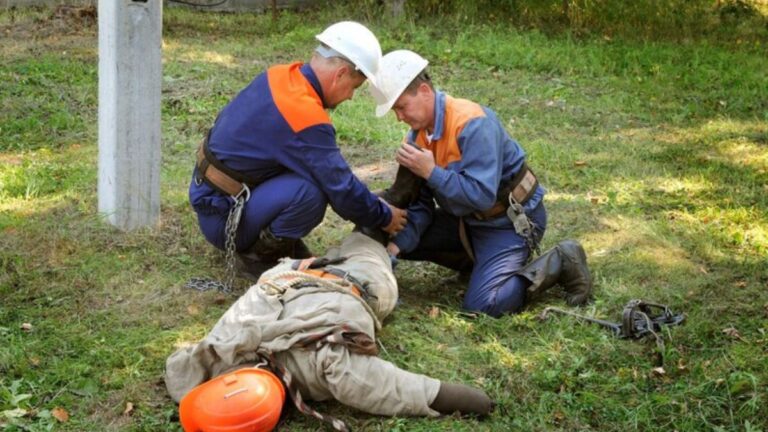Common Farm Hazards
Farming is one of the most hazardous occupations due to the nature of the work. Common farm hazards include heavy machinery, livestock handling, and exposure to chemicals. Grain handling is one of those seemingly safe tasks that may become quite dangerous if safety precautions are not taken. Heavy machinery such as tractors and combine harvesters can lead to severe injuries if not operated correctly. Livestock handling also brings its own set of risks, as animals can be unpredictable and may cause accidental injuries. Moreover, exposure to chemicals used in pesticides and fertilizers can result in long-term health issues if safety guidelines are not strictly adhered to.
In many cases, victims of farm accidents can seek legal assistance to address their injuries and losses. It’s advisable to hire a farm accident law firm to navigate the complexities of such situations and to potentially secure compensation for medical expenses and other damages. Legal experts can provide the crucial guidance to ensure that an injured party receives the proper support and compensation. Given that it can significantly damage the impacted individuals’ financial security and recovery process, this help is crucial.
Implementing Safety Measures
To mitigate the risks associated with farming, it is essential to implement stringent safety measures. Regular maintenance of machinery, safe chemical storage, and proper livestock handling techniques are a few steps that can help reduce accidents. Employers are responsible for making sure that all safety procedures are strictly followed and for providing personal protective equipment (PPE). For example, machinery should be checked regularly for any signs of wear and tear, and components should be replaced before they fail.
Additionally, having a clear emergency plan in place and conducting regular safety drills can prepare workers for possible accidents. Farm managers should inspect equipment frequently and replace any faulty machinery immediately to avoid potential hazards. Creating a safety-first culture on the farm is also vital. Encouraging workers to report any unsafe conditions and having an open dialogue about safety concerns can contribute to a safer work environment.
Furthermore, installing proper signage around the farm to indicate potential dangers can be beneficial. Warning signs near heavy machinery, chemical storage areas, and livestock pens can serve as constant reminders for workers to maintain vigilance. Limiting access to hazardous areas to only those who have received proper training and have the necessary PPE is also essential.
The Importance of Training and Education
One of the best ways to promote farm safety is through comprehensive training and education. Workers should be educated on the proper use of machinery, handling techniques, and emergency procedures. According to the CDC, enhanced training can significantly reduce the number of farm-related injuries and fatalities. Training programs should encompass practical demonstrations, hands-on practice, and continuous assessments to ensure that workers thoroughly understand safety procedures.
Training programs should be ongoing and updated regularly to incorporate new safety practices and regulations. It’s also beneficial to involve workers in safety discussions and encourage them to report any unsafe conditions they observe. Regularly scheduled refresher courses can help reinforce safety protocols and update workers on any new regulations or equipment.
Additionally, leveraging technology for training can be very effective. Workers can acquire and practice new skills in a safe and controlled setting by using virtual simulations and online courses. Mobile apps that offer safety tips and checklists can also serve as handy references for workers on the go.
Legal Options for Farm Accidents
If an accident does occur, it’s important for victims to know that legal recourse is available. They might be eligible for reimbursement for lost income, medical costs, and other expenses, depending on the specifics of the case. According to OSHA, farm employers are obligated to provide a safe working environment, and failure to do so can result in legal consequences. Workers hurt by their employers’ carelessness are entitled to pursue legal recourse to recover damages for their losses and injuries.
Consulting with a specialized attorney can help clarify the rights and options available to accident victims. These legal professionals can guide individuals through the necessary steps to file a claim and pursue justice for their injuries. Legal action can hold negligent parties accountable, which may prevent future accidents by encouraging stricter adherence to safety regulations.
Moreover, legal professionals experienced in farm accident cases can provide invaluable support during settlement negotiations with insurance companies. They can ensure that the compensation offered is fair and covers all aspects of the victim’s needs, including long-term medical care and rehabilitation costs.
Conclusion
Farm safety is crucial for preventing accidents and ensuring the well-being of those who work in this vital industry. Understanding common hazards, implementing safety measures, investing in training and education, and knowing legal rights can create safer farm environments for everyone involved. In addition to safeguarding employees, a continuous dedication to safety increases farming operations’ overall productivity and sustainability. While the inherent risks of farming cannot be entirely eliminated, taking proactive steps can go a long way in reducing incidents and fostering a culture of safety within the agricultural community. The ultimate objective is to make sure that everyone can work in a supportive and safe environment, producing necessary
